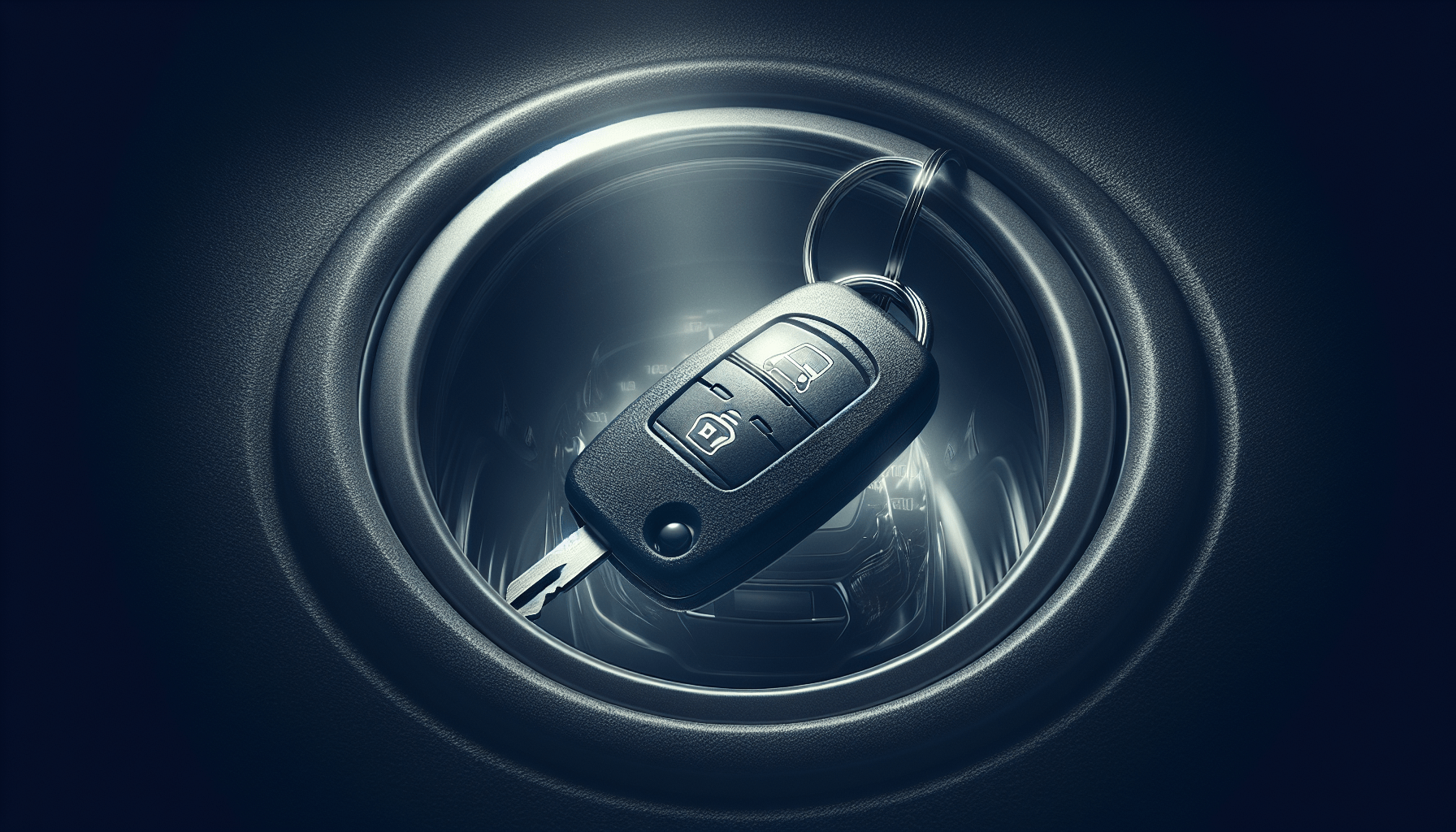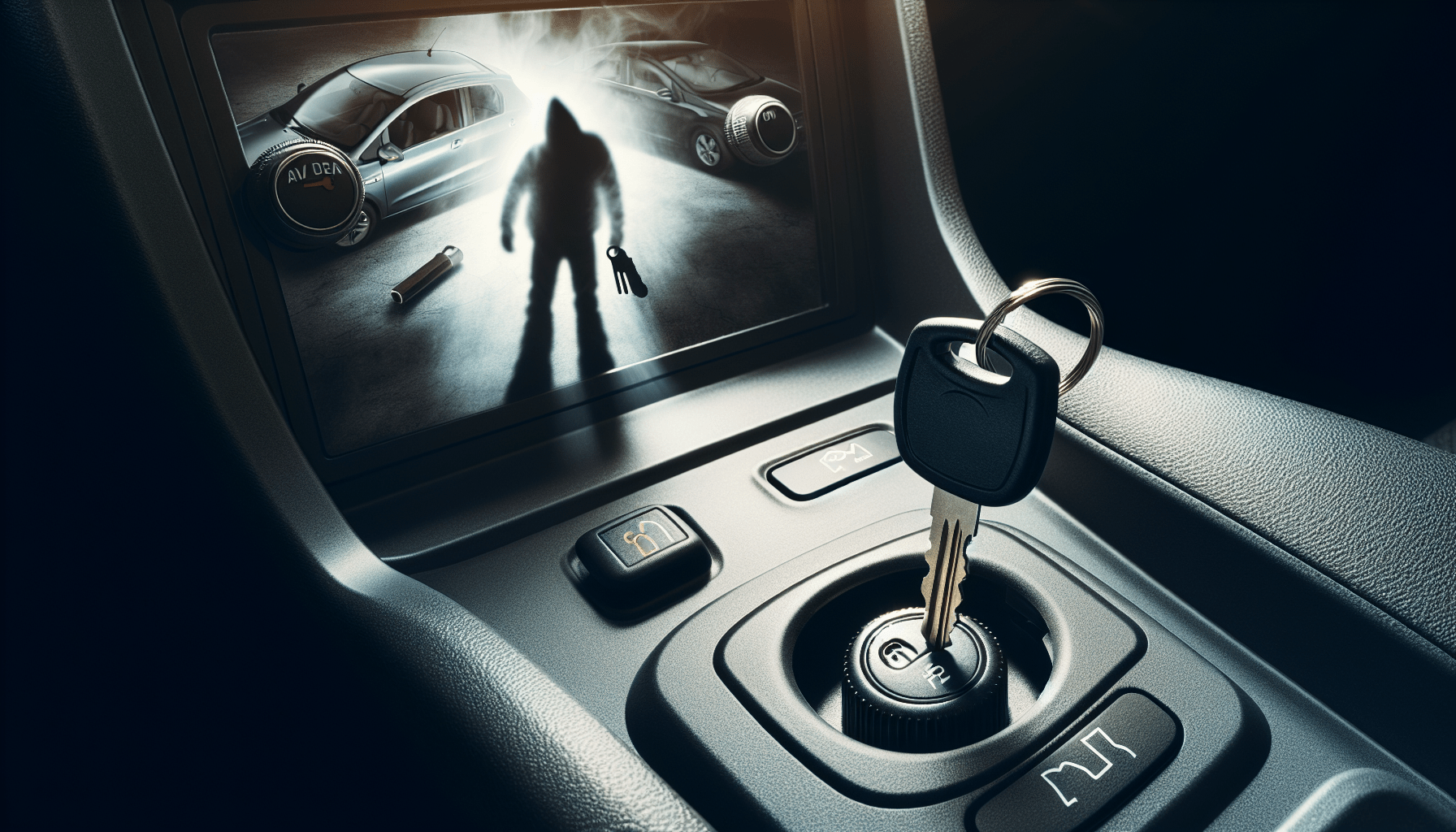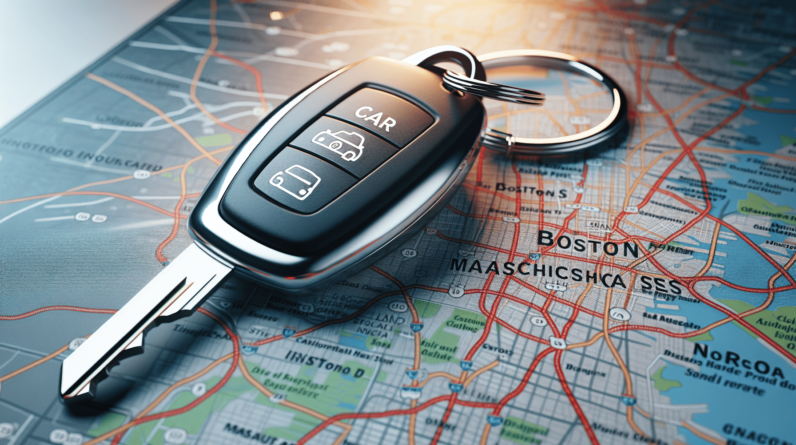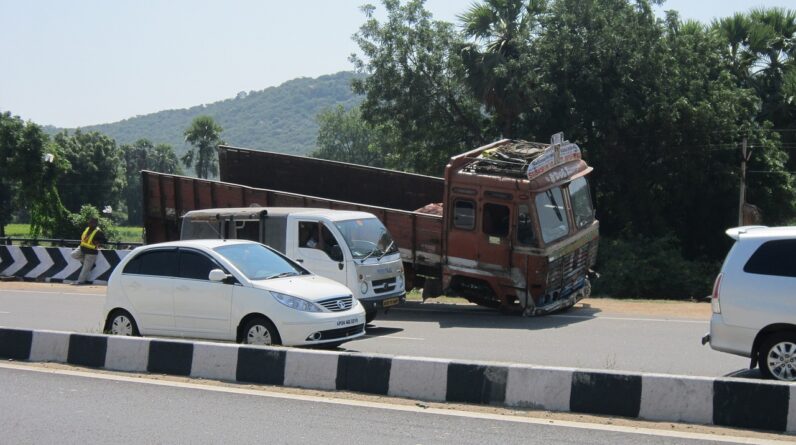
So, you find yourself in an unfortunate situation – your car has been stolen. It’s a distressing and overwhelming experience, to say the least. But amidst the chaos, there’s one burning question on your mind: how much will your insurance actually cover when it comes to a stolen car? Well, fear not, because we’re here to shed some light on this matter. In this article, we’ll explore the factors that determine how much insurance will pay for a stolen car, helping you understand what to expect and providing you with some peace of mind during this challenging time.

Determining The Value Of A Stolen Car
Actual Cash Value (ACV)
When determining the value of a stolen car, insurance companies often use the Actual Cash Value (ACV) method. ACV takes into account factors such as the car’s age, condition, and market value. This method calculates the amount you would have received if you had sold the car right before it was stolen. It is essential to understand the ACV of your car, as it will significantly impact the insurance payout you receive.
Replacement Cost Value (RCV)
Another method used to determine the value of a stolen car is the Replacement Cost Value (RCV). This approach considers the cost of purchasing a new car that is similar to the stolen one. While this method may result in a higher payout, it is less commonly used by insurance companies. However, certain policies may provide RCV coverage, so it’s essential to review your insurance policy to understand what method applies to your situation.
Insurance Deductible
Before your insurance payout is calculated, your policy’s deductible must be taken into account. The deductible is the amount you are responsible for paying out of pocket before the insurance coverage kicks in. For example, if your policy has a $500 deductible and the insurance estimate for your stolen car is $5,000, you would receive $4,500 from the insurance company after deducting the $500 deductible.
Coverage Types
Comprehensive Coverage
Comprehensive coverage is an insurance policy that covers damages to your vehicle caused by factors other than a collision. This coverage provides financial protection in the event of theft, vandalism, fire, or natural disasters. Having comprehensive coverage is crucial because it ensures that you are eligible for an insurance payout when your car is stolen.
Collision Coverage
While comprehensive coverage primarily protects against non-collision incidents, collision coverage specifically covers damages caused by a collision with another vehicle or object. Although collision coverage does not directly apply to stolen cars, it is still important to have it as part of your insurance policy to protect against potential accidents or if your car is recovered in a damaged condition.
Gap Insurance
Gap insurance is an additional coverage option that can be beneficial if your car is stolen. It covers the difference between what you owe on your car loan or lease and the actual cash value of the vehicle. If your car is stolen and not recovered, or if it is recovered but deemed a total loss, gap insurance can help bridge the gap between the insurance payout and the outstanding loan or lease balance.
Factors Affecting Insurance Payout
Insurance Policy Limits
Insurance policy limits refer to the maximum amount that the insurance company will pay for a claim. These limits can vary depending on the coverage type and the specific terms of your policy. It is important to review your policy and understand the limits associated with theft claims to ensure you have sufficient coverage.
Deductibles
As mentioned earlier, deductibles are the out-of-pocket expenses you must pay before your insurance coverage applies. The deductible amount can impact the insurance payout for a stolen car. Choosing a higher deductible can lower your monthly premiums but also means a higher amount you would need to cover yourself in the event of a theft.
Market Value of the Car
The market value of your stolen car is a significant factor in determining the insurance payout. Insurance companies typically consider factors such as the make, model, year, mileage, and condition of the vehicle when assessing its market value. Obtaining an accurate estimate of your car’s market value can help you negotiate a fair insurance payout.
Car’s Condition
The condition of your car at the time of the theft can also affect the insurance payout. If your car was well-maintained and in excellent condition, it may be valued higher than a similar model in poor condition. It is essential to keep detailed records of any maintenance or repairs performed on your vehicle to demonstrate its condition before the theft.
Car’s Age
The age of your stolen car plays a role in determining its value. Typically, older cars have a lower market value compared to newer models. Insurance companies consider the depreciation that occurs over time when calculating the insurance payout. However, if your car is a classic or antique vehicle, its value may be different, and you should consult with your insurance company to ensure proper coverage for these types of cars.
Mileage
The mileage on your stolen car can also impact its value and, consequently, the insurance payout. Higher mileage may lead to a lower valuation as it indicates more wear and tear on the vehicle. Keeping track of your car’s mileage can help support your claim and ensure that the insurance company accurately assesses its worth.

Claim Process
Filing A Police Report
The first step when your car is stolen is to file a police report. Contact your local law enforcement agency and provide them with all the necessary details, such as the car’s make, model, year, license plate number, and any identifying features. A police report is an essential document for initiating your insurance claim.
Contacting Your Insurance Company
Once you have filed a police report, promptly contact your insurance company to report the theft and initiate the claims process. Provide them with all the information from the police report and any additional details they may require. The insurance company will guide you through the necessary steps to file a claim accurately.
Providing Documentation
To support your claim, gather all relevant documentation, including your insurance policy details, the police report, and any maintenance records or receipts related to the stolen car. Providing comprehensive documentation can help expedite the claims process and ensure an accurate insurance payout.
Cooperating with the Investigation
After filing your claim, the insurance company will typically conduct an investigation into the theft. It is crucial to cooperate fully with the investigators by providing any requested information or additional documentation promptly. Failure to cooperate may result in delays or complications in the claims process.
Waiting Period for Investigation
The investigation into the theft may take some time, and you will need to be patient during this period. The insurance company will assess the circumstances surrounding the theft, review the information provided, and conduct any necessary research or verification. It is important to stay in touch with your insurance company and inquire about the progress of your claim if needed.
Receiving Insurance Payout
Once the investigation is complete, and your claim has been approved, the insurance company will determine the insurance payout based on the factors mentioned earlier. If the claim is approved, you will receive the agreed-upon payout amount minus any deductible and policy limits.
Settlement Negotiation
In some cases, you may find that the initial insurance payout offered does not fully cover the market value of your stolen car. In such situations, it is essential to negotiate with the insurance company. Provide any additional evidence or documentation that supports a higher valuation and make your case for a fair settlement.
Claims Settlement Options
Actual Cash Value (ACV)
In most cases, the insurance payout for a stolen car will be based on the actual cash value (ACV) of the vehicle. This means that the insurance company will provide an amount equivalent to what you would have received if you had sold the car immediately before it was stolen. While the ACV may not cover the full cost of purchasing a similar replacement car, it is the standard method used by insurance companies.
Replacement Car
In rare cases, an insurance policy may include coverage for a replacement car. If your policy has this coverage, the insurance company may provide you with funds to purchase a new car of similar make and model to the stolen one. However, these policies can be more expensive, so it is essential to review your policy to determine if this coverage is included.
Negotiating the Settlement
If you believe that the initial insurance payout offered is insufficient, you have the right to negotiate with the insurance company. Present any additional evidence, such as comparable car listings or expert opinions, to support your case for a higher payout. Negotiating the settlement may require patience and persistence but can result in a more favorable outcome.
Dealing with Insurance Delays and Disputes
Disagreement on the Car’s Value
There may be instances when you and the insurance company disagree on the value of your stolen car. The insurance company’s assessment may be lower than your expectations or the market value. In such cases, it is crucial to gather evidence, such as recent appraisals or repair estimates, to support a higher valuation. You can also seek the assistance of independent appraisers or obtain a second opinion.
Denial of Claim
Occasionally, insurance companies may deny theft claims for various reasons, such as policy exclusions or lack of evidence. If your claim is denied, thoroughly review your policy and the reasons provided for the denial. If you believe the denial is unjustified, consult with a legal professional experienced in insurance matters to understand your options and potentially challenge the denial.
Seeking Legal Advice
If you encounter significant delays or disputes with your insurance company regarding the payout for your stolen car, it may be wise to seek legal advice. An attorney with expertise in insurance law can help navigate the claims process, negotiate with the insurance company on your behalf, and ensure that your rights are protected.
Additional Considerations
Vehicle Modifications
If your stolen car had any aftermarket modifications, such as upgraded stereo systems or custom rims, it is essential to communicate this information to your insurance company. These modifications may increase the value of your car beyond its stock condition, potentially affecting the insurance payout. Keep records of any modifications and their associated costs for accurate valuation.
Personal Belongings
While your car insurance typically does not cover personal belongings stolen along with your car, it is still important to document any items that were inside the vehicle at the time of the theft. Report these items to the police and retain records of their value to file a separate claim with your homeowner’s or renter’s insurance policy if applicable.
Rental Car Coverage
In case your car is stolen, having rental car coverage can be immensely helpful. This coverage ensures that you have access to a rental car while your claim is being processed or until you can arrange a replacement vehicle. Review your insurance policy to determine if rental car coverage is included or consider adding it for added peace of mind.
Premium Implications
It is important to be aware that filing a claim for a stolen car can potentially impact your future insurance premiums. Insurance companies consider theft claims as higher risk, which may result in increased premiums when it’s time to renew your policy. However, the specific premium implications can vary depending on the insurance company and your overall claims history.
Tips to Maximize Insurance Payout
Maintain Comprehensive Insurance Coverage
To ensure maximum insurance payout in case of a stolen car, it is crucial to maintain comprehensive insurance coverage at all times. Comprehensive coverage protects against theft and other non-collision incidents, giving you the financial security you need if the unfortunate happens.
Keep Documentation
Keeping thorough documentation of your car’s maintenance history, modifications, and any recent appraisals can significantly help support your theft claim. These records provide tangible evidence of your car’s value and condition, helping you negotiate a fair insurance payout.
Install Anti-Theft Devices
Installing anti-theft devices in your car can act as a deterrent to potential thieves and may also lower your insurance premiums. Whether it’s an alarm system, steering wheel lock, or GPS tracking device, these security measures not only protect your car but also give you added peace of mind.
Park in a Safe Area
Choosing secure parking locations can reduce the risk of car theft. Whenever possible, park in well-lit areas, secure parking lots, or garages with surveillance cameras. Taking these precautions can help minimize the chances of your car being targeted by thieves.
Regular Maintenance
Maintaining your car in good condition not only keeps it running smoothly but also helps establish its value in the event of theft. Regular servicing, addressing any mechanical issues promptly, and keeping up with recommended maintenance schedules are essential steps towards maximizing your insurance payout if your car is stolen.
Recovering Stolen Cars
Stolen Vehicle Recovery System
Some newer cars are equipped with advanced stolen vehicle recovery systems, such as GPS tracking. These systems can aid in locating and recovering stolen cars. If your car has a built-in recovery system, report the theft to the tracking service provider to increase the chances of getting your car back.
Law Enforcement Efforts
Law enforcement agencies play a crucial role in recovering stolen cars. They actively investigate reported thefts and work to locate and recover stolen vehicles. Provide the police with all the necessary information and assist them in their efforts to increase the likelihood of retrieving your stolen car.
Private Investigators
In some cases, hiring a private investigator specialized in vehicle theft may be an option worth considering. These professionals have expertise in locating and recovering stolen cars and can provide valuable assistance in conjunction with ongoing law enforcement efforts.
Insurance Company Investigations
Insurance companies also conduct their investigations to recover stolen cars. They may employ private investigators or work closely with law enforcement to locate the stolen vehicles. Stay in contact with your insurance company and provide any requested information or documentation to aid in their investigation.
Conclusion
Understanding the insurance payout process for a stolen car is essential in ensuring you receive fair compensation. By familiarizing yourself with the methods used to determine the value of a stolen car, the various coverage types available, and the factors that influence insurance payouts, you can navigate the claims process more confidently.
Taking preventive measures, such as maintaining comprehensive coverage, installing anti-theft devices, and practicing safe parking habits, can minimize the risk of car theft and contribute to a smoother claims experience. Additionally, keeping thorough documentation, being patient during the claims process, and seeking legal assistance when necessary can help maximize your insurance payout.
Remember, while the unfortunate event of a stolen car can be distressing, being well-informed and proactive can make the process more manageable and increase the likelihood of a successful resolution.







